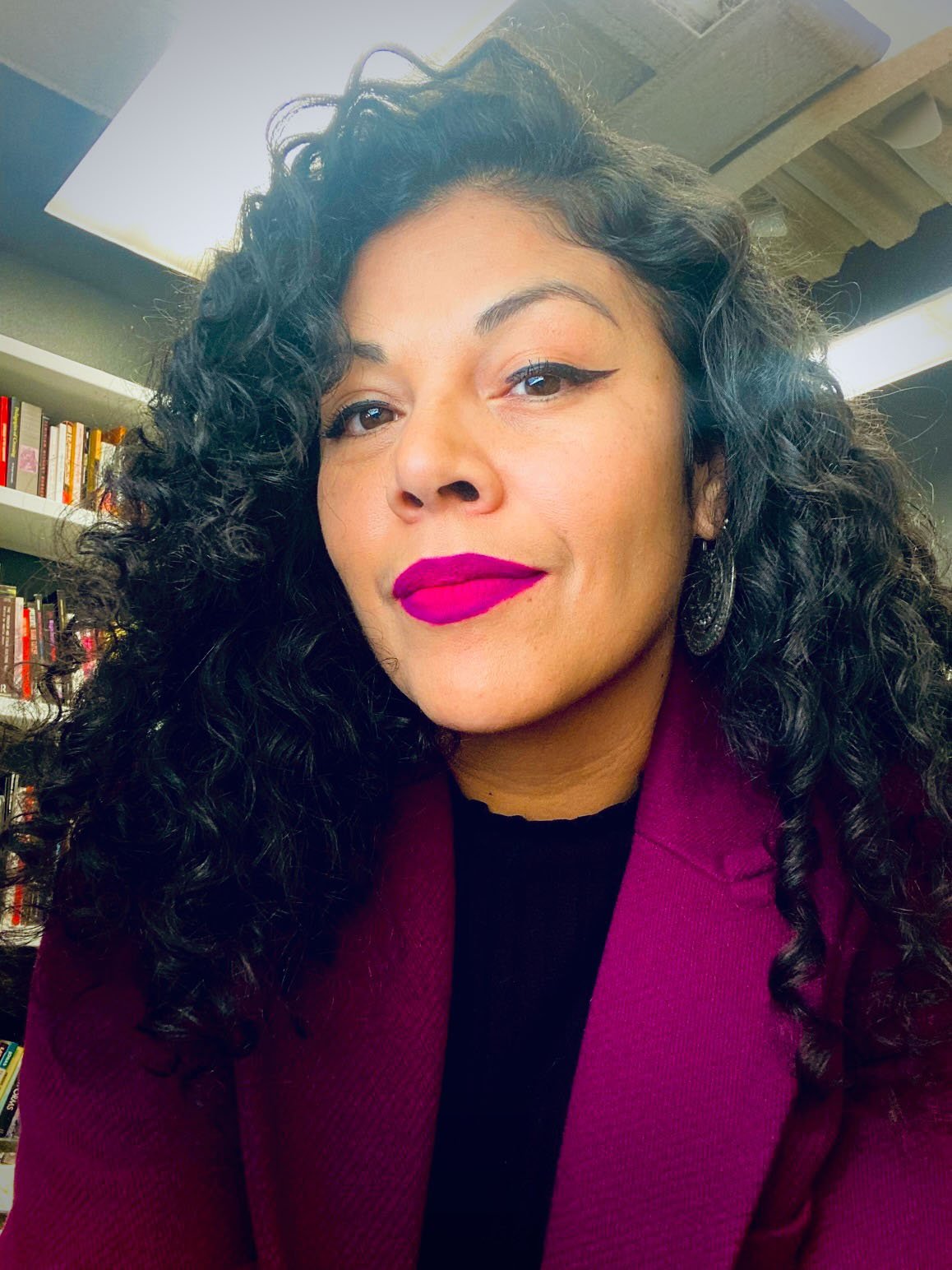Over time Central American studies have emerged as a response to increased migration from the isthmus and the formation of large Diaspora communities in the United States. As the field continues to grow and these communities continue to evolve, what are the new issues within the field that must be addressed and what interventions need to be made? What new directions does scholarship need to take to account for emerging categories of social and political identification within the Central American community?
Participants
Maritza Cárdenas (she/her) is an Associate Professor of English and former Interim Director of the Confluencenter for Creative Inquiry and the Global Studies program at the University of Arizona. She is also an affiliate faculty member in Gender and Women’s Studies, Latin American Studies, the Program in Social Cultural, Critical Theory, Institute of LGBTQ studies and an Executive Committee member for the Human Rights Practice Program. She received her doctorate and master’s degree from the University of Michigan’s program of American Culture, and her bachelor’s degree from the University of Southern California’s department in Comparative Literature. A recipient of the Woodrow Wilson Postdoctoral Fellowship and the CMAS-Benson Latin American Research Fellowship, she is also the elected delegate of the Latina and Latino Literature section for the Modern Languages Association. Dr. Cárdenas is the author of Constituting Central American-Americans: Transnational Identities and the Politics of Dislocation (Rutgers 2018), which highlights the historical, socio-political processes that have facilitated the construction of a pan-ethnic transnational cultural identity (Central American) to emerge in the U.S. diaspora.
Kency Cornejo is Associate Professor in the Department of Art at the University of New Mexico where she teaches Contemporary Latin American and Latinx Art Histories. Her teaching, research, and publications focus on contemporary art of Central America and its US-based diaspora, art and activism in Latin America, and decolonizing methodologies in art. Some of her publications on US/Central American art can be found in the Journal of Latin American and Latinx Visual Culture; Journal of Commonwealth and Postcolonial Studies; Aztlán: A Journal of Chicano Studies; and Art and Documentation, among others. She is author of the book Visual Disobedience: Art and Decoloniality in Central America, with Duke University Press (Oct 18, 2024), which analyzes thirty years of art and decoloniality in the isthmus. Her work has been supported by the Fulbright and Ford foundations, an Andy Warhol Foundation Arts Writers Grant, a National Endowment for the Humanities Faculty Award Grant, among others. She holds a PhD from Duke University, an MA from UT Austin, and BA from UCLA. Kency was born to Salvadoran immigrant parents and raised in Compton, California.
Suyapa G. Portillo Villeda is Associate Professor of Chicana/o Latina/o Transnational Studies at Pitzer College. Her research and teaching priorities include Central American history, migration to the U.S., gender and labor in Central America, LGBTTI Latina/o populations and queer (im)migration in the Americas. Her work focuses on the intersections between labor, gender, ethnicity, race and other marginalized identities in workers’ lives in Central America and in the U.S.
[Moderator] Paolo Aiello is a PhD candidate in the American Studies program at New York University. He received his B.A. Degrees in Spanish Lit. & Central American Studies from California State University Northridge, where he was awarded the HSI Pathways/Mellon Student Fellowship. His doctoral work has been supported by the NYU Migration Network as well as the NYU Latinx Project Public Humanities Fellowship. He is currently pursuing research related to testimonio, Central American migration, and immigrant coalitions and organizing.





